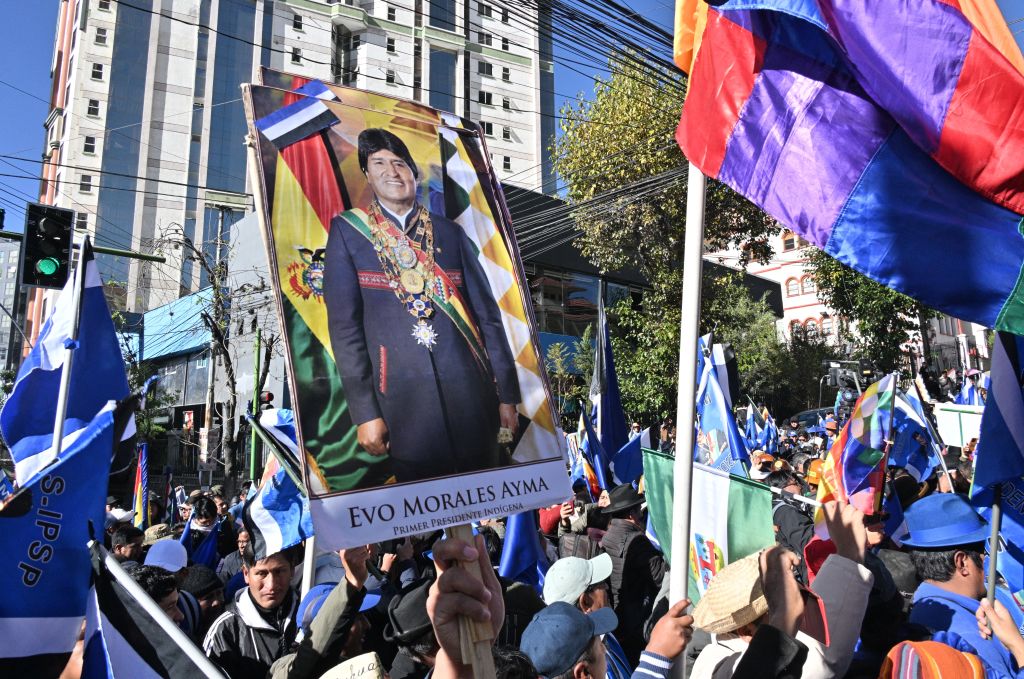LA PAZ — Instead of enjoying his enormous political and social successes, Mexico’s outgoing president, Andrés Manuel López Obrador (AMLO), is hastily advancing a controversial judiciary reform that has divided his country. If it passes, close to 7,000 judges will be elected by popular vote, including top magistrates.
The contentious reform, which the Senate is reviewing this week for its final approval, has been widely criticized. The business community, justice system operators—including thousands of judges who have been on strike for weeks in protest—and even the nation’s leading trading partner have all warned that the bill will make the judiciary even more vulnerable to big money, political power, and organized crime. AMLO argues that the proposal seeks to lend legitimacy to the judicial system and ensure that judges are genuinely independent, something he claims is not the case today due to supposed corporate influence.
Only one other country in the world has tried this experiment: Bolivia. And in Bolivia, it has been an abject failure. It has eroded not only the judiciary’s legitimacy and independence but also the country’s rule of law and its political stability.
In terms of legitimacy, Bolivia’s judicial system is now more discredited than ever. Its judiciary was never especially efficient or effective, but the election of judges by popular vote worsened its rule of law performance: according to the 2023 World Justice Project index, Bolivia ranked 131 out of 142 countries worldwide. In another sign that the quality of the judiciary has deteriorated, more judges than ever are the center of public scandals.
Judicial independence has also suffered. In Bolivia’s system, judicial candidates must be approved by Congress before they run for office. Bolivia’s ruling party, the Movimiento al Socialismo (MAS), has long enjoyed supermajorities in Congress that it has used to ensure that almost all judicial candidates are aligned with Bolivia’s ruling party. This is likely to be the case in Mexico, where AMLO’s Morena party has a supermajority in the lower house and is just one vote short in the upper house.
December elections
Indeed, many of Bolivia’s most prominent jurists have been driven from the process of running for a seat in the judiciary because it has become so politicized. Bolivia has so far held two elections of judges, in 2011 and 2017. The next is scheduled for December 1, even though in both of the previous elections, the public expressed its dissatisfaction; blank and null votes amounted to 60% and 67% of the vote, respectively.
These blank and null votes demonstrated both a rejection of the politicization of the judiciary and voter uncertainty over whom to support; many of the candidates were virtually unknown to the public. One-third of the population did cast a valid vote but many did so following instructions from the ruling party.
The results in Bolivia have been dire, playing a significant role in the instability of the past five years. The compliant judiciary sympathetic to the MAS and former President Evo Morales allowed him to run for a controversial fourth term in the 2019 elections. This decision came despite an explicit Constitution prohibition and a clear rebuke from the public, which rejected a 2016 referendum Morales called to amend the relevant constitutional text.
This led directly to the crisis of November 2019, when massive popular demonstrations forced Morales to resign and leave the country. Initially, several rulings supported the interim government of Jeanine Áñez. However, after the October 2020 elections brought MAS back to power with President Luis Arce, the judiciary withdrew Áñez’s legal protections.
This reversal paved the way for her to be criminally prosecuted despite another explicit Constitutional prohibition. Áñez is now serving a 10-year sentence and awaiting verdicts in other cases against her. Meanwhile, the so-called independent judges elected by popular vote proceeded to support the key decisions of the Luis Arce administration.
An aberration
As Morales mulls another presidential run on shaky legal grounds, it seems that there is more instability ahead for Bolivia due in large part to the politicization of the judiciary. Ahead of the December 1 elections of 26 judges, observers fear that the results will be more of the same.
Meanwhile, in Mexico, AMLO warned on September 6 that the Supreme Court would commit an “aberration” if it tried to block his reform. Instead of his usual discourse on legitimacy and independence, he said the reform intends to target “foreign companies that come to loot, steal, and harm the Mexican economy.”
Whatever his motivations, Bolivia shows that the legacy of this reform is likely to be painful. It appears set to undermine not only the judiciary’s legitimacy and independence but also the nation’s political stability.






